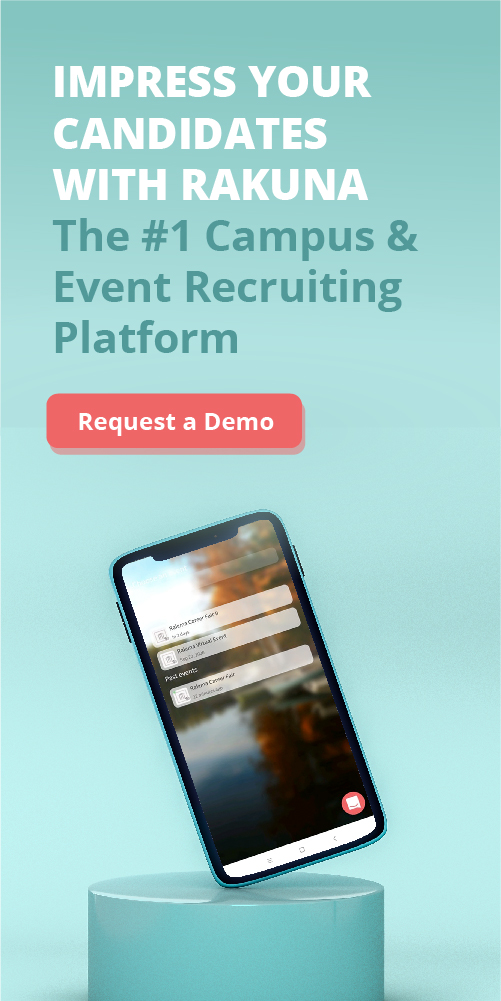Recruiting Young Talent: Bridging the Gap Between Companies and University Students to Unlock Potential
The future of a company depends on the future of its people. When young talent enters the workforce, they are, by definition, inexperienced. The few top percent of university students will stand out – the ones who have already started a business, earned a research grant, or completed some other remarkable work – but the majority of university students will not have the track record to determine a hiring decision, and this forces employers to pursue new means to evaluate talent and invest more time in building relationships with our next generation’s workforce. Let’s look at how companies and students alike are making strides toward satisfying work.
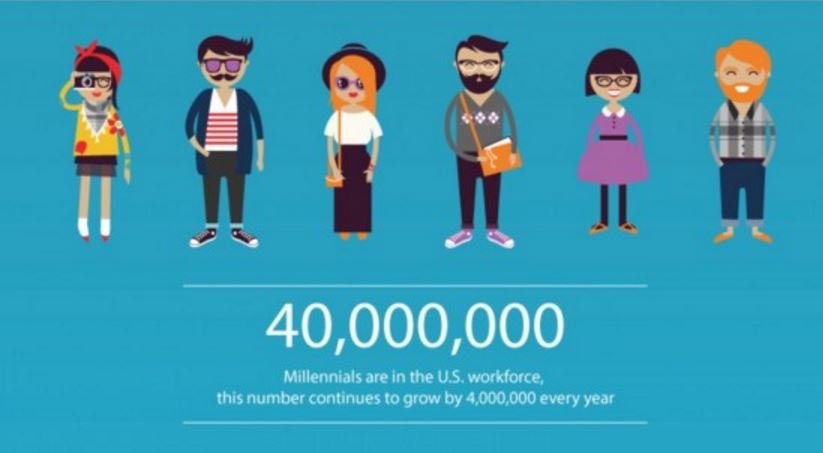
Companies and Students Making Strides Together
First and foremost, accept that the influx of young talent into your organization is inevitable for its long-term prosperity. Across our economy, it’s happening at about 4 million people annually. So, if companies are ready to recruit millennials, how do students perceive the experience of joining the workforce? The experience is facilitated and reflected online. Two trends in the discrepancy of student expectations: (1) the level of online communication and (2) the perception of experience.
It’s a catch-22. Many companies won’t hire someone without ‘experience,’ and young talent can’t gain ‘experience’ if no one will hire them. The line between academic work, social media activity, and work for an employer is finer than a resume can deliver. In such cases, you can rely on staffing companies that hire, train, and deploy professionals to ensure they produce outputs from their day one at work.
Facebook was founded in 2004 when the average age of college freshmen was 6. The management of social relationships is at least partially expected to be online. Employers are increasingly building followings on social networks and niche communities to widen their recruitment marketing funnel.
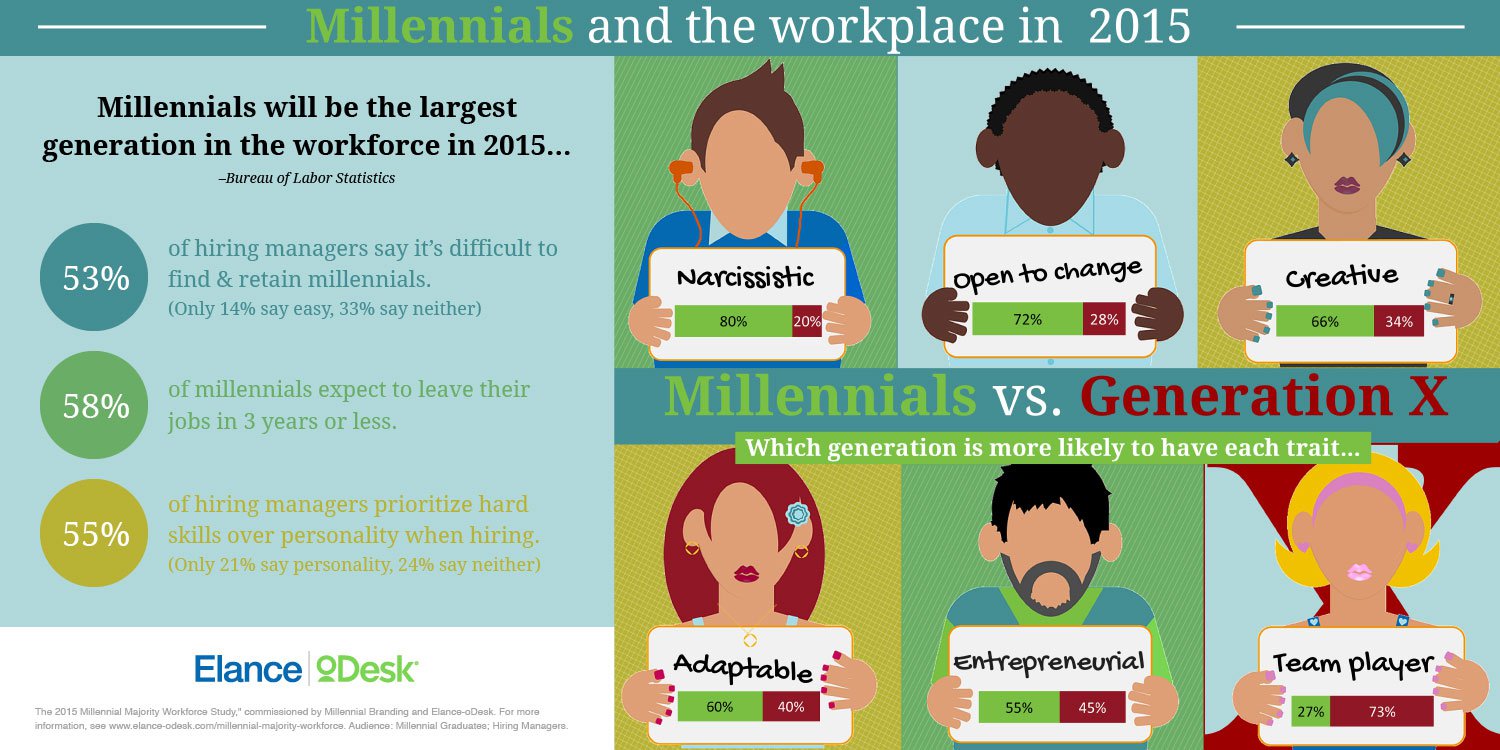
When the present generation hires the future generation, there are workplace expectation barriers. The research above indicates that the average millennial vs. the average Generation X person is about 4x as likely to be narcissistic, 3x as likely to be open to change, 2x as likely to be ‘creative,’ and a quarter as likely to be a team player. Ego, adaptability, creativity, and teamwork are essential to the performance of your next hire.
“When we help companies get the most out of campus recruiting, it starts with leveling the playing field,” said Trong Dong, CEO of the campus recruiting solution Rakuna. “Companies should be collecting and evaluating the same base information, and then empowering their team to build a relationship on that information.”
Hiring the best young talent is the objective, but don’t forget there are hiring quotas to meet and corporate liabilities to consider. It’s difficult to know how a new talent will adapt to a new role in a new industry. One way to mitigate risk is to hire for attitude.
In the worst-case scenario, when hiring for attitude, the hire will give you their best effort. It’s not about expertise in a vertical – I’ve driven traffic across a dozen industries (here are 20 of my publications to give you a taste) – it’s about dedication in the approach brought to the objective. Ask yourself if the candidate is excited to solve our business problems. According to the AACU, 93% of employers said “a demonstrated capacity to “think critically, communicate clearly and solve complex problems” is more important than a job candidate’s undergraduate degree.”
Problem-solving ability remained in demand according to NACE, but in terms of employer’s demand for candidate qualities, NACE ranked it third, below communication and teamwork. This recent survey asked 201 NACE employer members to estimate the importance of millennial candidate qualities. Here’s a telling excerpt from the Job Outlook 2016 survey:
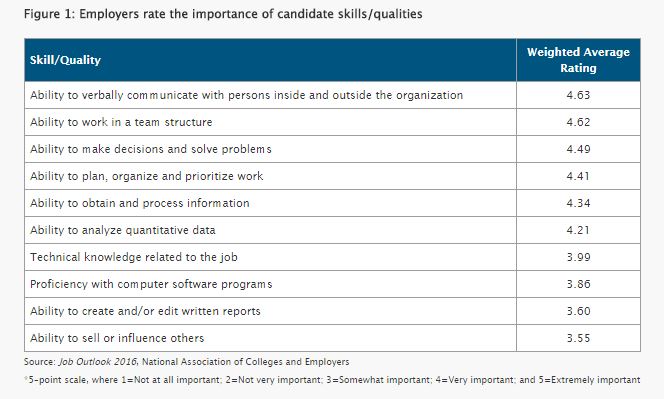
Notice the theme of more attitude-based attributes leading the way, as the most desired candidate qualities are communication level and teamwork. Business Insider covers Harvard reporting similar findings – it is intangible qualities, in their words, “warmth and competence,” that drive hiring decisions. However, the motivation for recruitment must always be juxtaposed with the candidate’s intent. In a LinkedIn blog post by the Lucas Group, a millennial’s career priorities are simplified as:
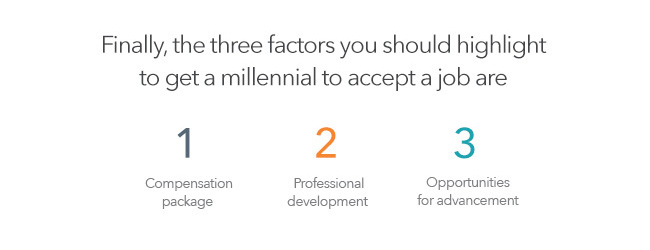
While in many ways recruiting is still recruiting, as indicated by the top reasons the millennial generation accepts job offers (compensation, development, and opportunities), understanding what makes millennial candidates different is what will give recruiters a leg up today. On campus and online, the best companies are ready to engage and nurture millennials on the millennials’ native turf. Winning top talents is never easy. Therefore, to get a headstart in recruiting talented young people, recruiters must learn to adopt the right campus recruiting software that can help them stand out and engage candidates at college recruitment fair.
Learn more about campus recruiting software at Campus Recruiting Software – The Solution for Your Next Campus Recruiting Program.

